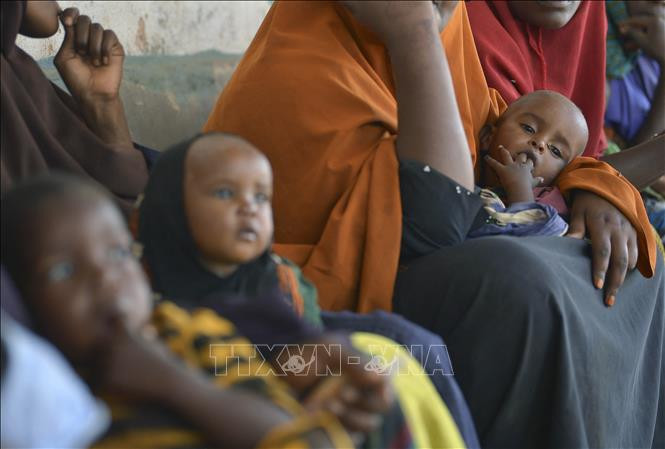On October 26, the United Nations Humanitarian Coordinator in Somalia George Conway said that about 4 million people in the country are suffering from crisis levels of food security.

Some 3.8 million Somalis are internally displaced, a figure that has increased by 1 million during the recent prolonged drought. According to Mr. Conway, Somalia has been experiencing a prolonged and severe drought - the worst in 40 years - leading to a high risk of famine. He said that thanks to humanitarian activities over the past two years, more than 6.3 million Somalis have received some form of UN assistance, including food, sanitation, clean water and some basic necessities.
However, Mr. Conway also said that although recent rains have helped improve food insecurity across the country, many challenges remain. In addition to basic humanitarian needs in the country, the UN humanitarian coordinator also expressed concern about the impact of El Nino on the rainy season in Somalia.
According to the Food and Agriculture Organization of the United Nations (FAO), about 1.2 million Somalis could be affected by flooding in the next three months, with 1.6 million hectares of land inundated. In this regard, Mr. Conway said Somalis in shelters for internally displaced people are also expected to be severely affected. The country is forecast to experience the heaviest rains in 20 years. Mr. Conway noted that UN humanitarian agencies have been working with the Somali government to prepare measures to mitigate the impact of heavy rains on the population.
Meanwhile, in Ecuador, the government said on the same day that it would cut power for several hours every day until mid-December due to a severe drought related to El Nino that has affected production at the country's hydroelectric plants.
This is the most severe drought in Ecuador in the past five decades, affecting the eastern and southern regions of the country, where up to 90% of hydroelectric plants are operating. Energy Minister Fernando Santos stated: "Current electricity production is not enough to meet the country's needs. To prevent the collapse of the electricity grid, we are forced to cut a certain amount of electricity and temporarily."
The power cuts will last four hours a day in the Sierra and Amazon regions and three hours a day in coastal areas, Santos said. The cuts will begin on October 27 and will be planned by the power companies in the capital Bogota. He added that technical problems at hydroelectric plants have exacerbated production problems at these plants amid the drought.
According to Tin Tuc newspaper